Orthopedic Conditions
Sciatica

The sciatic nerve extends from your lower back down to your feet. If your sciatic nerve is compressed or inflamed, a painful condition called Sciatica can result. Trauma, spinal conditions or medical conditions that irritate the sciatic nerve cause Sciatica. The majority of people with Sciatica experience relief with non-surgical treatments. However, those with spinal […]
Read More....Scoliosis

Scoliosis is an abnormal curvature of the spine. Some people are born with scoliosis, or it may result from neuromuscular conditions, osteoporosis or for unknown reasons. Scoliosis is a progressive condition that can become worse over time. Untreated severe curvatures can cause medical complications. Scoliosis Symptoms Scoliosis causes the spine to curve to the side. […]
Read More....Facet Joint Syndrome
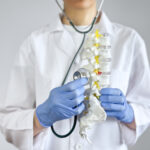
Your facet joints connect the bones that align to make up your spine. When you have healthy facet joints, they glide freely and allow movement. Your facet joints provide stability and allow spine motion. Natural aging, injury, arthritis and certain spine conditions can change the way that the facet joints move which leads to pain […]
Read More....Spondylolysis (Stress Fracture)
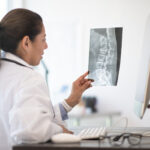
A stress fracture in a vertebra is called spondylolysis. Stress on the lower back especially during repetitive and excessive activities during sports may result in a stress fracture. Some people are born with thin vertebral bones that are susceptible to getting spondylolysis. Spondylolysis (Stress Fracture) Symptoms Spondylolysis may not cause symptoms. It can cause lower […]
Read More....Spondylolisthesis (Slipped Vertebrae)

Your spine is composed of a series of bones called vertebrae. Spondylolisthesis (slipped vertebrae) results when a vertebra slips out of position in the spine. Slipped Vertebrae Symptoms Your symptoms depend on how far the vertebra has moved out of position and if other structures or nerves are affected. Most often, slipped vertebrae does not […]
Read More....Whiplash

Whiplash occurs when the head moves suddenly from severe impact, typically during car crashes when a car is rear-ended but also from sports, work or violence related injuries. The injury occurs when the head moves forward, backwards or sideways suddenly, often to extreme degrees. The muscles, ligaments, joints or spine structures may be damaged. Whiplash […]
Read More....Neuropathy (Nerve Pain)
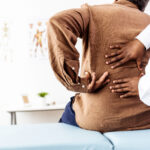
Neuropathy is a type of pain that involves the nerves. Neuropathy results from nerve degeneration, pressure, inflammation or infection. There are several causes of neuropathy, including carpal tunnel syndrome, pinched nerves, spinal stenosis and pressure from spinal discs. Nerve pain management is individualized. Lifestyle changes including weight loss, regular exercise, and smoking cessation; and physical […]
Read More....Spinal Stenosis
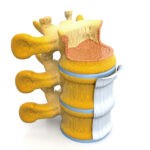
The lower back is a common place to experience pain and discomfort. The lumbar spine is located in your lower back. The bones align to form the spine. Aging, arthritis, and degenerative conditions can cause the bones to change shape and narrow the areas where the spinal cord and nerves travel through, causing spinal stenosis. […]
Read More....Degenerative Disc Disease
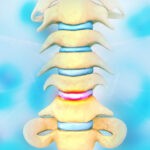
Degenerative Disc Disease is a condition that causes the intervertebral discs in the spine to deteriorate or break down. Intervertebral discs are the shock-absorbing pads located between your vertebrae. The vertebrae are the series of bones that make up your spine. Degenerative Disc Disease can occur in any part of the spine. It develops more […]
Read More....Cervical Radiculopathy
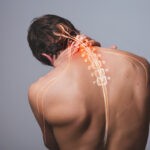
Cervical radiculopathy is a condition that results when a nerve is pinched or irritated as it leaves the spine in the neck. Nerves from the spinal cord exit at various levels from the spine and travel throughout the body. With cervical radiculopathy, the nerves are affected at the spine, but the symptoms may be felt […]
Read More....




